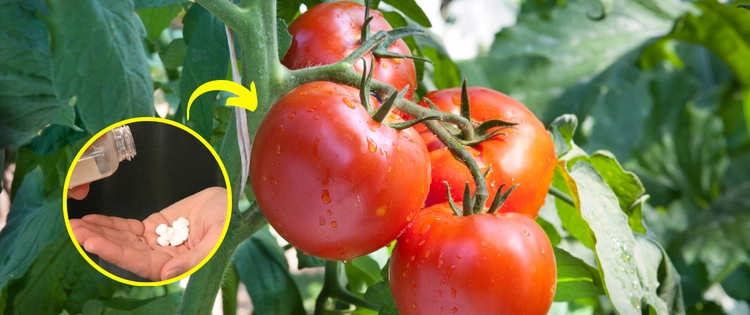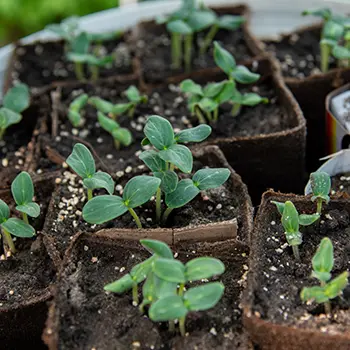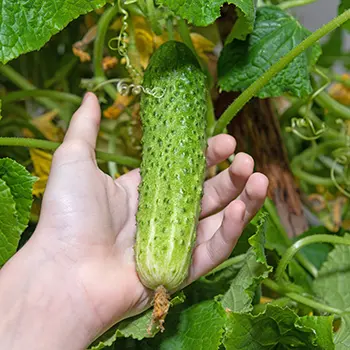As a gardening enthusiast or a farmer, using aspirin for your plants might seem like an unconventional solution, but it can work wonders for your crops. Let’s talk about why you should give aspirin to your crops.
Aspirin has salicylic acid, which strengthens plant immunity, increases crop yields, and helps plants grow better.
Curious how this common medicine can make crops healthier and stronger? Here are six reasons to try aspirin on your plants.
Make your gardening more successful with this easy, everyday item you probably already have at home.
Here’s Why You Should Give Aspirin To Your Crops:
Manages Climate Change Impact
Greenhouse gases like CO2, methane, and nitrous oxide trap heat on Earth. This leads to global warming. The trapped heat changes the ideal temperature plants need to grow and mature. It also causes oxidative stress, which harms plant growth.
Here’s how salicylic acid, an active component in aspirin, helps to withstand climate change for your plants:
- Salicylic acid boosts hydrogen peroxide (H2O2) levels and lowers the activity of an enzyme called catalase. This protects plants like mustard and potatoes from heat damage by reducing stress.
- Plants like maize, wheat, chickpeas, cotton, cucumbers, and bananas handle cold better when treated with salicylic acid. It helps by reducing catalase activity, cutting electrolyte leakage, and increasing antioxidant enzyme reactions.
Additionally, you can also use the salicylic spray to counteract the damaging effects of UV radiation and ozone in tobacco plants and A. thaliana as demonstrated through studies.
How to Use: Crush 1-2 tablets (325mg) into finely crushed powder. Stir it in 1 liter of water until completely dissolved. Dip a cotton ball into the solution and gently apply it to the leaves every three weeks throughout the growing season.
Why You Should Give Aspirin To Your Crops? Increases the Lifespan!
Using aspirin to your crops or flowers can help them thrive. Aspirin extends the life of cut flowers by lowering the water’s pH. Roses, for example, last longer in aspirin water because they naturally grow in acidic soil rich in nutrients.
Aspirin is also anti-bacterial, keeping the water clean and free of harmful bacteria that could damage your flowers. Try adding aspirin to your crops or vases to see the difference!
How to Use: Take 250-500 mg of aspirin per gallon of water, and dissolve it to make a mixture. Put the flowers inside this solution in a pot. Remember to change the water in the vase daily to further increase the lifetime of harvested flowers.
Accelerates Seed Germination
Unlock the easiest way to enhance seed germination and seedling growth with aspirin.
The role of aspirin, containing salicylic acid, in improving plant seed germination significantly depends upon its concentration.
Here’s how aspirin contributes to seed germination:
- Treating Arabidopsis with salicylic acid (0.05–0.5 mM) can boost seed germination by up to 80%. Salicylic acid helps by forming proteins essential for germination.
- However, too much salicylic acid can have the opposite effect. For example, doses above 1.1 mM in Arabidopsis and 0.25 mM in barley can stop seeds from sprouting.
How to Use: Prepare a mixture of aspirin and water and mix it until aspirin is completely dissolved. Put the seeds in the solution and let them soak for 12-24 hours before plantation.
Why You Should Give Aspirin To Your Crops? Boosts The Crop Yield!
Using aspirin to your crops boosts their immunity by triggering systemic acquired resistance (SAR). This process activates the plant’s defense system against pathogens. The salicylic acid-binding protein 2 (SABP2) sends signals to increase plant hormone levels in response to microbial attacks.
By adding aspirin to your crops, you can help them fight off diseases more effectively.
Studies have shown that aspirin effectively enhances the tomato plant’s immune system. The results proved that only 47% of plants treated with aspirin water showed infection. While a higher percentage, 94% of untreated plants, were infected with the phytoplasma pathogen.
Similarly, the United States Department of Agriculture found that salicylic acid boosts the immune response in nightshade family plants.
How to Use: Prepare the aspirin solution by adding the crushed 1-2 tablets into water. Directly add this mixture to the soil around the base of plants.
Promotes The Plant Growth
Bid farewell to stunted growth and say hello to the blooming flowers and plants with aspirin. Salicylic acid, found in aspirin, boosts plant growth by stimulating plants’ physiological and biochemical activities. Research indicates that salicylic acid enhances growth and productivity across various plant species.
In corn and soybeans, aspirin to your crops can boost leaf area and dry mass. For Brassica juncea, low doses of salicylic acid significantly increase dry matter. Similarly, barley, groundnut, and B. juncea show higher carbohydrate and photosynthetic rates when pre-treated with salicylic acid.
Salicylic acid also promotes root growth in plants like mung bean, soybean, carrot, and marigold. Healthy roots are essential for better plant growth and higher yields.
Using aspirin to your crops is a simple way to enhance their productivity and vitality.
How to Use: To apply aspirin for enhancing the growth of plants, follow the steps below:
- Take three tablets of aspirin (250 to 500 milligrams) and dissolve it in 4 gallons (11.5L) of water.
- Pour the mixture into a bottle and spray it over the plants regularly every three weeks during the growing season.
Restricts the Fungus Growth
If you notice fungus spreading in your garden, try using aspirin to your crops to stop it. The USDA found that aspirin can help fight fungal diseases and protect plants.
How to Use Aspirin for Your Crops:
- Prepare the mixture: Dissolve one aspirin tablet (324mg) in a gallon of water.
- Apply the mixture: Pour the solution into a spray bottle. Spray it on affected plants, covering stems, leaves, and all infected areas.
- Check the plants: Inspect your plants regularly. Look for signs of improvement and adjust how often or how strongly you apply the spray.
Aspirin can reduce fungus, boost growth, and improve crop yields. While pesticides and fertilizers are important, adding aspirin to your crops can bring amazing results.
Enjoy healthier, thriving plants by adding aspirin to your gardening routine. Start today and see your garden flourish!
If You See This Plant in Your Backyard, Burn It Immediately! (Video)
What Happens If You Spread Coffee Grounds In Your Garden













